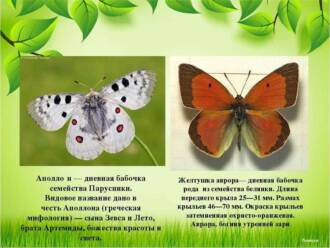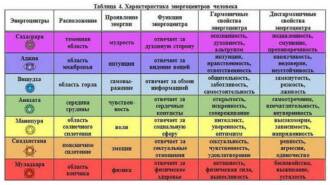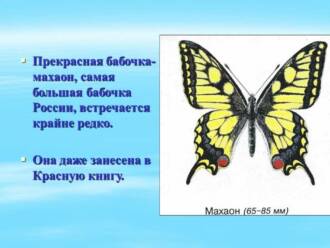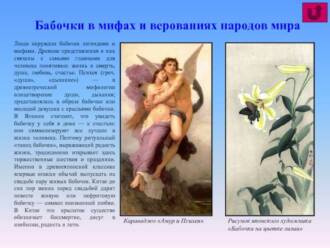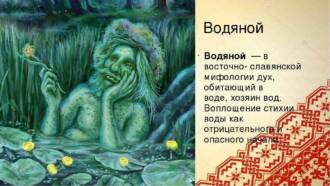
I wonder where the word "butterfly" came from? This word has an ancient history and is associated with the amazing world of insects. Let's try to figure out how this name for one of the most beautiful and unique creations of nature came about.
The word "butterfly" comes from the old Russian word "baba", which meant "old woman" or "little old woman". Initially, this word was used to describe a small insect that looked like a grandmother with open arms. Perhaps this name was associated with the shape of the wings of butterflies, which seem like open arms.
In the Middle Ages, the word "baba" was also used to denote a woman, and "butterfly" became the name for a small woman or girl. Over time, the word came to be used specifically for insects that were associated with the lightness and beauty characteristic of the female sex.
Origin and Etymology of the Word "Butterfly"
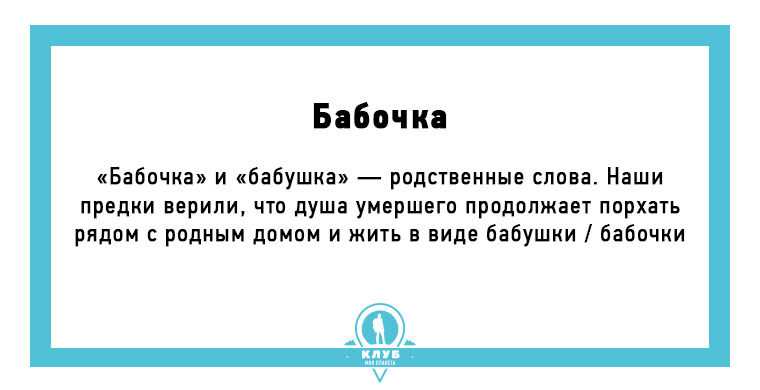
The origin of the word "butterfly" has an ancient and interesting history. This word came to us from the Old Slavic language and has roots in the word "baba", which means "woman". The word "butterfly" was formed by adding the suffix "-chka", which denotes a small or diminutive meaning.
Thus, the word "butterfly" can be translated as "little woman" or "female". This name was given to the insect because of its graceful and light gait, which resembles the movements of a woman in a dress.
It is interesting to note that in different languages of the world the word “butterfly” has different origins and etymologies. For example, in English the word "butterfly" has a peculiar origin. It is connected with the idea that butterflies fly over milk barrels and drink milk.
Also, in some languages, the word "butterfly" has roots in the name of the goddess of love and beauty. For example, in Greek, the word "butterfly" (πεταλούδα) is associated with the goddess Psyche, who was depicted with butterfly wings.
Thus, the origin and etymology of the word "butterfly" are varied and depend on the cultural and linguistic characteristics of each language.
History of the study of the origin of the word

The origin of the word "butterfly" is one of the interesting topics in linguistics. The study of this issue has attracted the attention of many scientists who have tried to find an explanation for this name.
One of the first researchers to study the origin of the word "butterfly" was the Latvian philologist Konrad Blaese. In his research, he suggested that the word "butterfly" comes from the ancient Germanic word "baba", which means "doll". The butterfly was given this name because of its stages of development, in which it undergoes a complete transformation from a caterpillar to a chrysalis and, finally, to a beautiful insect.
However, this theory is not the only one. Other researchers suggest that the origin of the word "butterfly" is related to the ancient Greek word "papilio", which means "butterfly". One of the arguments in favor of this theory is that the word "papilio" has a similar sound structure to the Russian word "butterfly".
It is also known that in some regions of Russia the butterfly is called "peacock" or "peacock butterfly", which may also be associated with the ancient Greek word "papilio", since the peacock was considered a symbol of beauty and splendor.
The final research into the origin of the word butterfly is still an open question and requires further research and evidence. Although there are various theories, there is no definitive answer to the question of the origin of this word.
Variants of the origin of the word "butterfly"

1. Derived from the word "woman".
One of the possible origins of the word "butterfly" is related to its derivative from the word "woman". In some dialects of the Russian language, the word "woman" meant "woman". Thus, the word "butterfly" could be used to denote a small female individual, similar to a woman.
2. Connection with the word "baba" meaning "old woman".
Another version of the origin of the word "butterfly" is related to its connection with the word "baba" meaning "old woman". According to this theory, the butterfly was named so because of its association with old women, who can be fragile and light, like butterfly wings.
3. A reference to the word "baba" meaning "girl".
The third version of the origin of the word "butterfly" is related to its reference to the word "baba" meaning "girl". In ancient times, girls were often called "babas". Perhaps the word "butterfly" arose as a diminutive of this word to describe small and beautiful insects resembling girls.
4. Connection with the verb "babachit".
Another suggestion about the origin of the word "butterfly" is related to the verb "babachit", which in ancient times meant "to tremble". According to this version, the butterfly was named so because of its light and trembling flight.
5. Association with butterfly wings.
Some researchers suggest that the word "butterfly" may have originated from an association with the wings of the insect itself. Butterfly wings have a special beauty and unique patterns, which could evoke associations with feminine beauty and elegance.
The relationship of the word "butterfly" with other languages
The origin of the word "butterfly" has connections with other languages and cultures. For example, in English, this word sounds like "butterfly", which can be translated as "oil fly". The name is due to the fact that in ancient times people believed that butterflies steal butter and milk.
In German, the word for butterfly is "Schmetterling". This word comes from the Old High German "smezzarunga", meaning "striped creature". This name refers to the brightly colored wings of the butterflies.
In ancient Greek mythology, the butterfly had a special meaning. The name "butterfly" comes from the ancient Greek word "παπίλιον" (papilio), which means "butterfly". In Greek mythology, the butterfly symbolized the soul and reincarnation, as it goes through stages from egg to caterpillar, chrysalis and finally butterfly.
In Japanese, the word for butterfly is "chou". In Japanese culture, the butterfly symbolizes beauty, lightness, and transformation. It is also associated with cherry blossom season and is celebrated in Japanese poetry.
Semantic meaning of the word "butterfly"
The origin of the word butterfly is semantically related to the image and behavior of this insect. Butterfly is a small animal with wings, usually bright and colorful, which gives them a special attraction and beauty. The image of butterflies is often used in art and decoration, as they are a symbol of elegance and lightness.
Semantically, the word "butterfly" is also associated with summer and nature. Butterflies usually appear in the warm season, when flowers bloom and insects actively fly in search of food. They serve as an important link in the ecosystem, pollinating flowers and promoting the reproduction of plants. Thus, the word "butterfly" can be perceived as a symbol of vitality and harmony in nature.
Another aspect of the semantics of the word "butterfly" is related to transformation and transfiguration. The butterfly goes through a metamorphosis, starting its life as a caterpillar, then turning into a chrysalis and finally flying into the sky as a beautiful insect. This process symbolizes overcoming difficulties, personal growth and renewal.
Thus, the semantic meaning of the word "butterfly" includes associations with beauty, nature, vitality, harmony and transformation. This word has a deep symbolic meaning and is part of our culture and perception of the world.
Cultural associations with the word "butterfly"

The origin of the word butterfly is related to its lightness, beauty and tenderness. In different cultures around the world, the butterfly is associated with different symbols and meanings that reflect its unique properties.
Symbol of freedom and transformation

The butterfly is often associated with a symbol of freedom and transformation. Her transformation from a caterpillar into a beautiful insect symbolizes transformation and rebirth. In many cultures, the butterfly is seen as a symbol of change, new beginnings and liberation from barriers.
Symbol of beauty and elegance
The butterfly is known for its beauty and grace. Its bright colors and unique patterns on the wings cause admiration and delight. In various cultures, the butterfly is often seen as a symbol of beauty, elegance and grace.
Symbol of spirituality and spiritual development
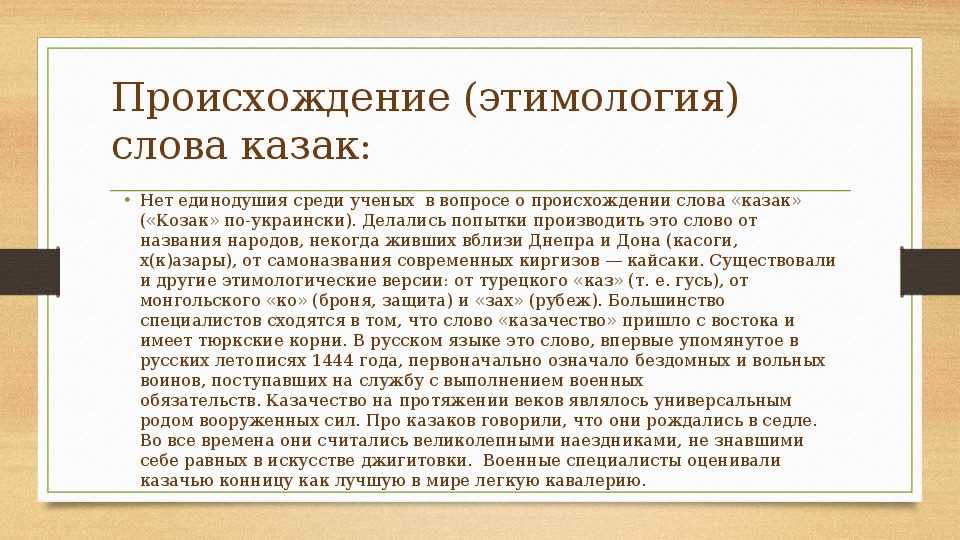
In some religions and philosophies, the butterfly is associated with spiritual development and enlightenment. Her transformation and transformation symbolizes spiritual enlightenment and the level of spiritual development.
Symbol of love and romance
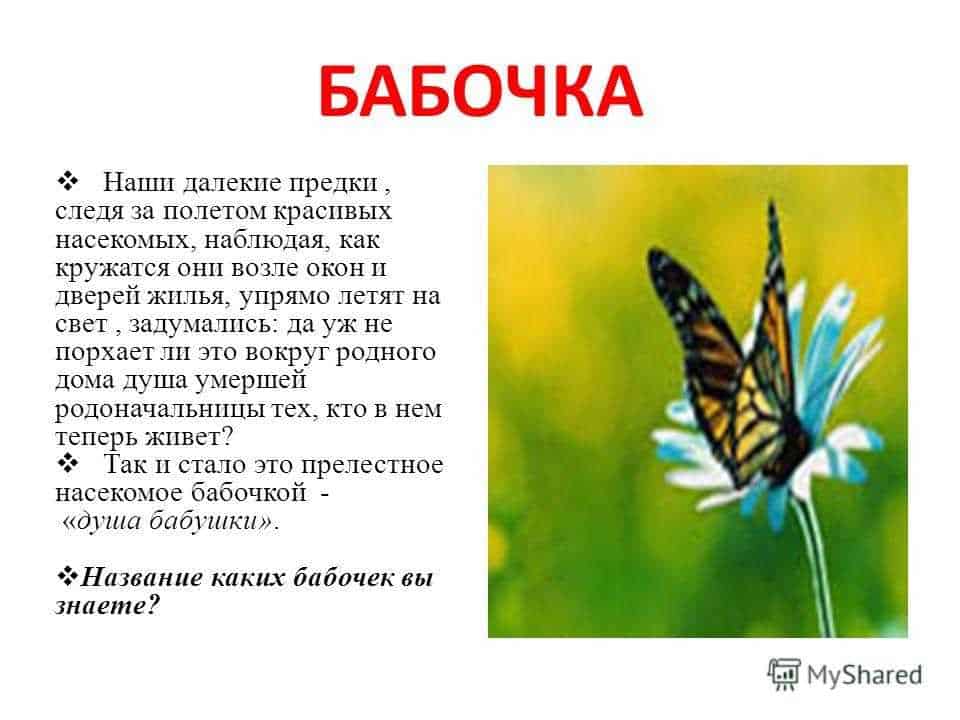
The butterfly is also associated with a symbol of love and romance. Her gentle and light movements, as well as her bright appearance, are associated with romantic feelings and emotions. In many cultures, the butterfly is seen as a symbol of love, passion and tenderness.

